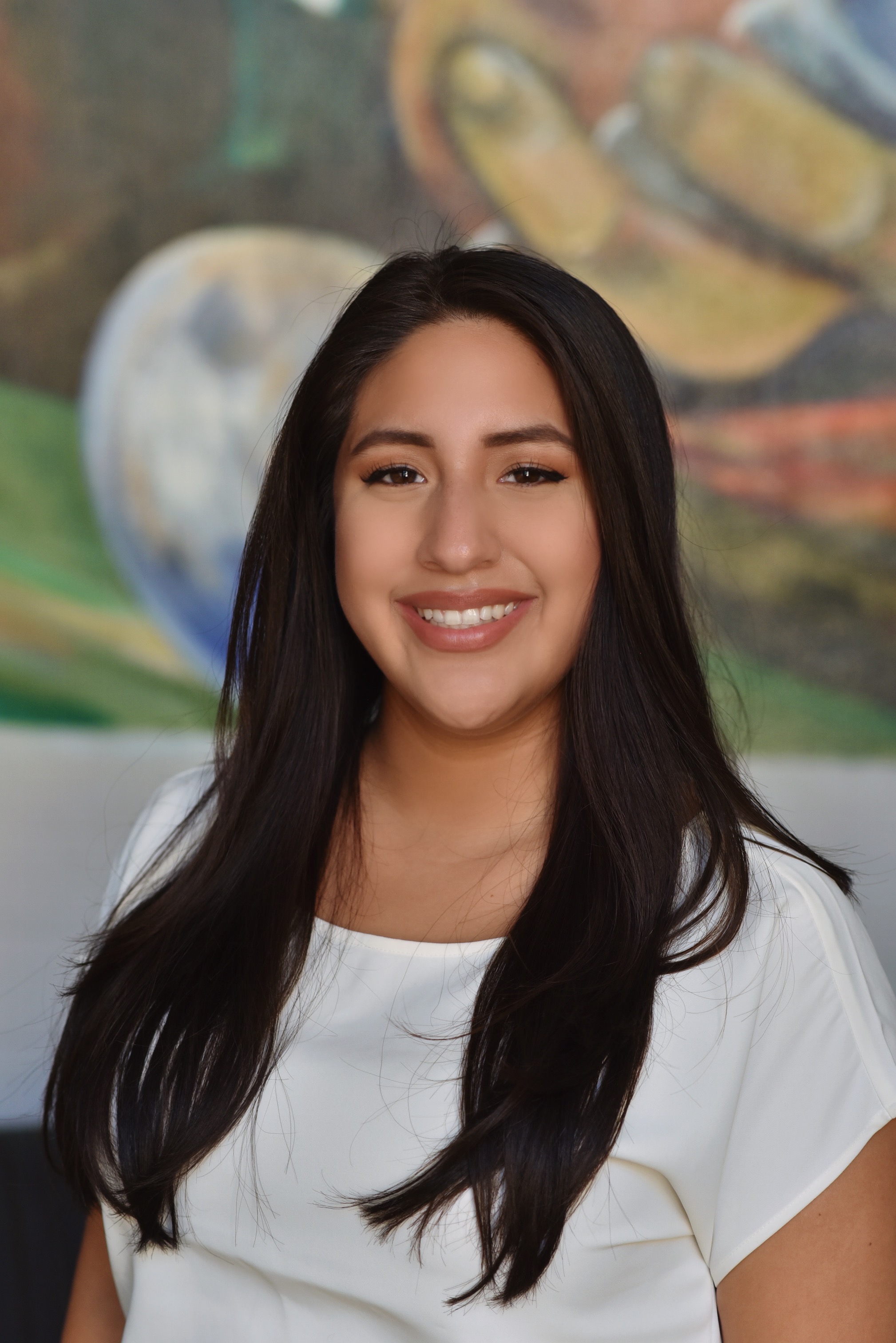
Brianna Ortiz (Biology)
how has the Diversity, Equity, and Inclusion concentration impacted the way you navigate daily life?
The concentration has impacted the way I navigate daily life. I find myself relying on the skills I acquired during the concentration, especially in these divisive times. Through the concentration I learned to actively listen and find common ground with every person I interact with. I seek to understand rather than to debate. In addition to this, I learned to appreciate my own identity while recognizing the diversity of identities in others around me. While I will never be a master of diversity, this concentration encouraged me to continue to educate myself on the experiences of others. I will always be grateful for the knowledge gained during the concentration and how it has impacted my life for the better.
capstone project highlight
My capstone project involved creating a video in English and Spanish that would walk students and their families through completing the FAFSA. I came across this project when I realized that within my own community I had began to host FAFSA workshops due to the confusion and assumptions that come up for families especially of different backgrounds. I proposed a video that would combat this gap in knowledge and would specifically target the nuances associated with completing the FAFSA to ensure each student at UT felt confident in the process and would not leave funds unclaimed. I attempted to carry out this project by working with the Financial Aid Office at UT in addition to gathering common questions and concerns from students across UT.
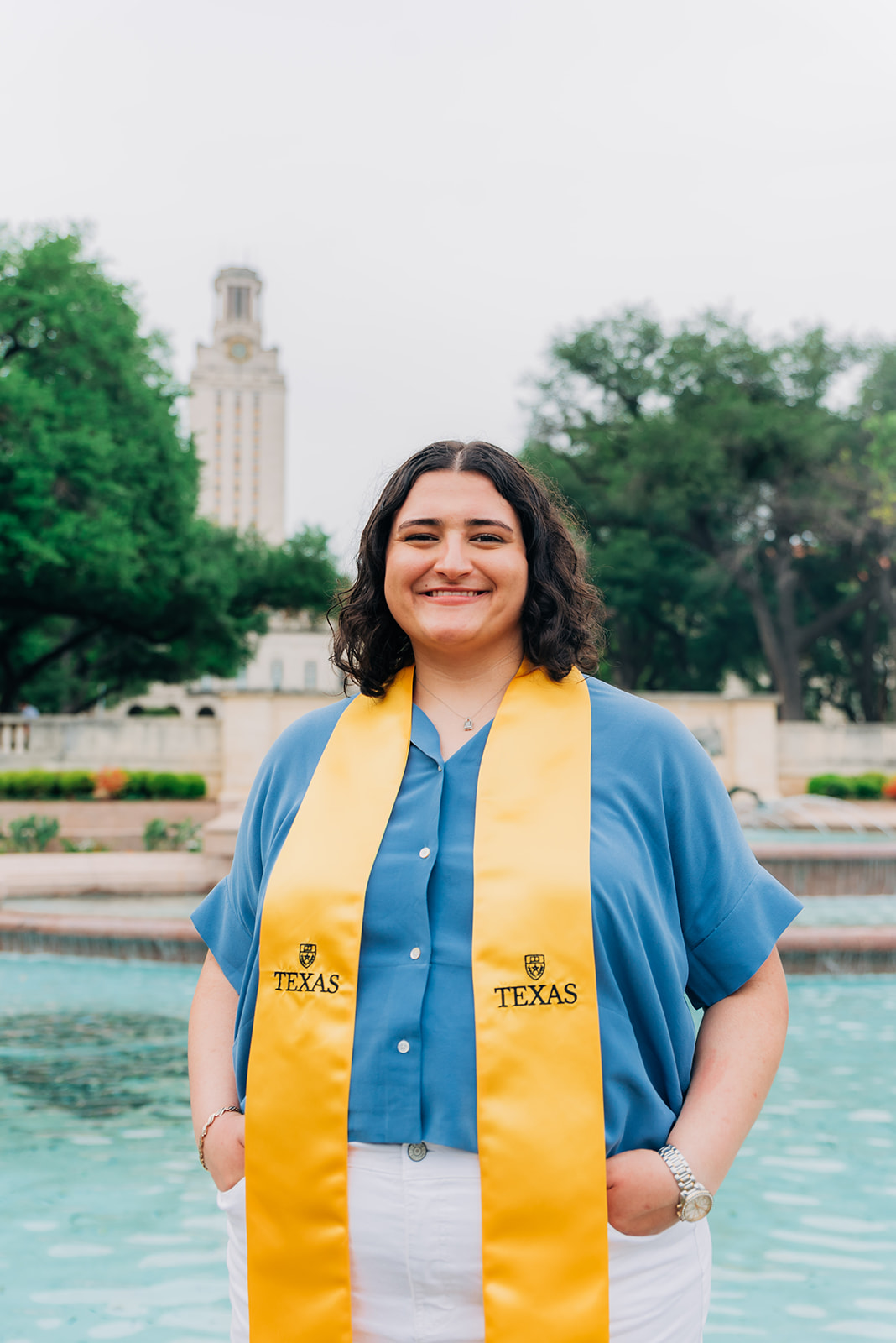
Suzanne Zeid (Biochemistry)
WHAT HAVE YOU GAINED AS A RESULT OF BEING A PART OF THE DIVERSITY, EQUITY, AND INCLUSION CONCENTRATION IN THE COLLEGE OF NATURAL SCIENCES?
Before completing the DEI concentration, I thought I had a pretty decent grasp on the concept of DEI. However, I was completely unaware of how much ignorance I still possessed. For instance, I had never heard the term "intersectionality" before (which is a very important concept I might add). I was made aware that possessing multiple marginalized identities has a larger (and harsher) impact on how the world perceives and treats you. As a result, I gained a better understanding of how society is centered around cis-gendered, straight, white men. By reading up on literature and adding vocabulary to my repertoire, I am now able to better understand, educate, and put into action DEI-related concepts, ideas, and practices.
capstone project highlight
For my capstone project I focused on bringing an LGBTQIA+ inclusive sex education to UT Austin students. I decided to choose this topic because, like many of my friends, I never received sex education in my public school. When sex education is taught in the state of Texas, teaching of abstinence is mandatory, it isn't required to be medically accurate, and it tends to be homophobic and centered around heterosexual relationships. My goal was to provide inclusive resources to help students explore their sexualities and sexual orientations in a safe space since most students were robbed of this opportunity while growing up.

Brianna Middleton (Biochemistry, Sociology, Educational Psychology)
What have you enjoyed most about being a part of the Diversity, Equity, and Inclusion concentration in the College of Natural Sciences?
I thoroughly enjoyed being able to acquire knowledge from the coursework and events to deepen my understanding of how to amplify the voices of the underserved, and the importance of using tools/resources to support those that are marginalized. These essential principles are necessary to build a more diverse, equitable, and inclusive society.
capstone project highlight
Losing my hearing in one ear became a unique aspect of my identity that required me to adapt to a new lifestyle (i.e., using closed captioning services). This discovery fueled my determination to turn this sentinel event into something positive that would help others. I channeled my lived experience and passion for the Deaf and hard of hearing community into a semesterly educational workshop on the Deaf and hard of hearing community. The objective of the sessions was to cultivate curiosity and advocacy among hearing individuals by delving into social identity, ear anatomy, history, language, terminology, health care disparities, and allyship.
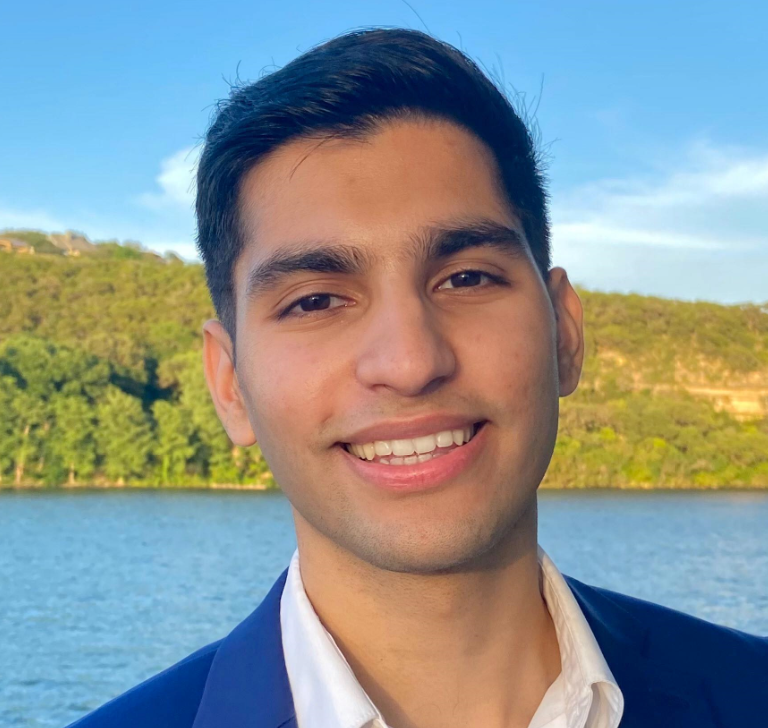
Ashish Chakraborty (Biochemistry)
WHAT HAVE YOU GAINED AS A RESULT OF BEING A PART OF THE DIVERSITY, EQUITY, AND INCLUSION CONCENTRATION IN THE COLLEGE OF NATURAL SCIENCES?
This concentration helped me formalize my interest and desire to contribute to DEI issues on campus and beyond, and it connected me to faculty and peers who were doing exactly that.
capstone project highlight
I envisioned a mentorship program between our Chemistry Department and local Title I elementary schools. I developed my interest in the project after leading ATX Science Olympiad, a STEM outreach organization doing similar work in the local community. I hoped to create a stronger relationship between UT and the surrounding community and encourage more minority students to go into STEM.
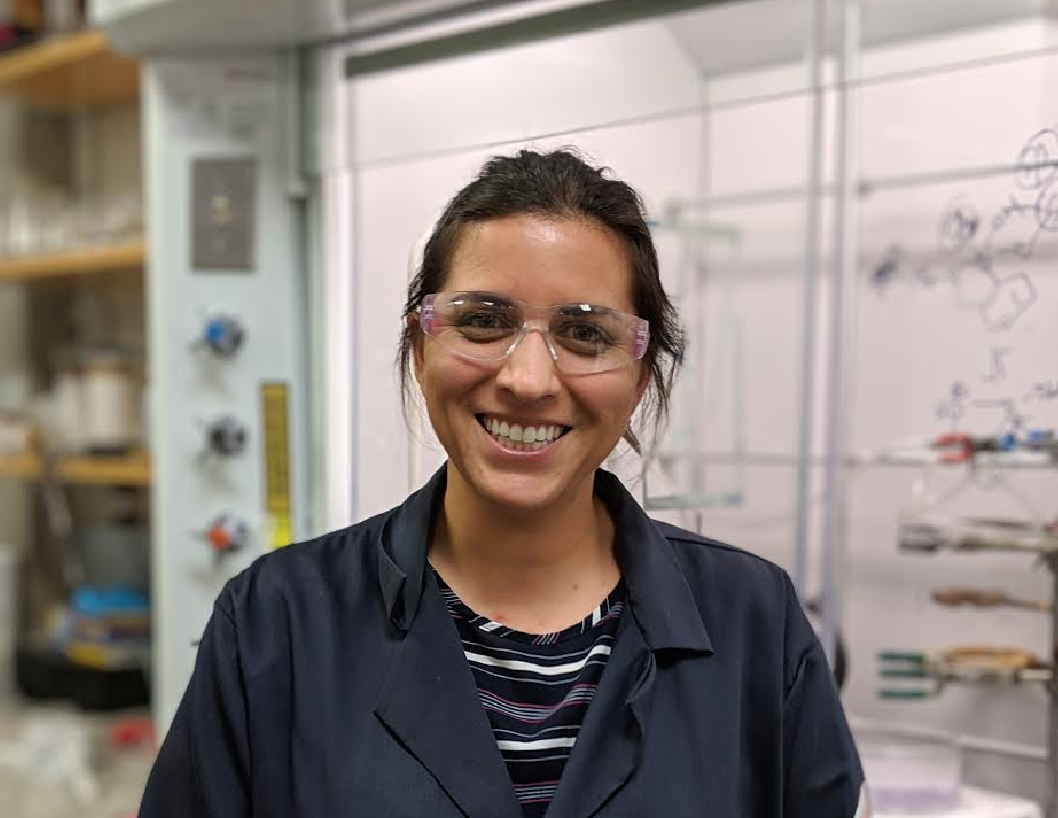
Stephanie Valenzuela (Chemistry, Ph.D.)
What have you enjoyed most about being a part of the Diversity, Equity, and Inclusion concentration in the College of Natural Sciences?
I have enjoyed working closely with the instructor on my course work, and Capstone Project. The class size is small which I appreciated greatly! Additionally, you move through the program with a cohort of students which helps to make the learning process a very supportive environment.
capstone project highlight
For my Capstone Project I developed an Ambassador Seminar Series Program aimed to promote higher education to undergraduate students. More explicitly, this program sends a faculty member and graduate student pair to a university that serves minority students to give a seminar talk. The seminar is focused on academic research, and their personal experiences regarding choosing a graduate program. In return, I hope this dismantles any preconceived notions student may have about graduate programs, and helps to encourage them to pursue a higher education.
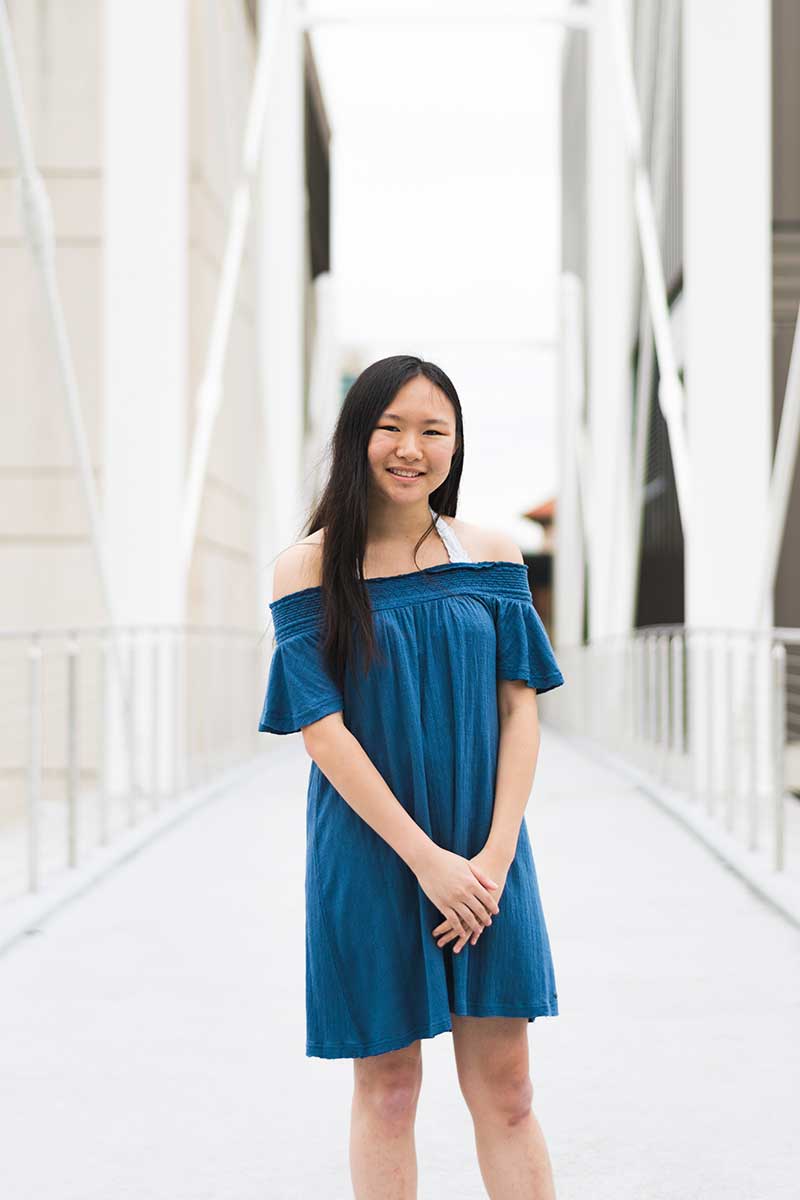
Didi Zhou (Computer Science)
WHAT HAVE YOU GAINED AS A RESULT OF BEING A PART OF THE DIVERSITY, EQUITY, AND INCLUSION CONCENTRATION IN THE COLLEGE OF NATURAL SCIENCES?
The concentration has helped me learn a lot of knowledge and background on different social inequalities that are deeply ingrained in our society while providing me with the tools to be able to create change towards bettering some of those issues. Through the classes and conversations I’ve had, I learned about the terminology and history of social issues and how engrained they are into society. The capstone class then allowed me to combine that knowledge with my own experiences and learn how to effectively create a project that addressed one of these issues. I know I will be using these skills and what I’ve learned wherever I end up in the future.
capstone project highlight
As a computer science major, I’ve heard many stories of technologies perpetuating existing social inequalities whether through failing to work for folks with darker skin tones or allocating resources away from marginalized groups. My project aimed to help mitigate these harms in the education phase and plant seeds of thought in future technologists. I worked on integrating ethics and social impact material into technical CS courses, starting with the introductory course that students take. This way, students will learn to think about the potential impacts of their work and, hopefully, think about these when they are creating future technologies.
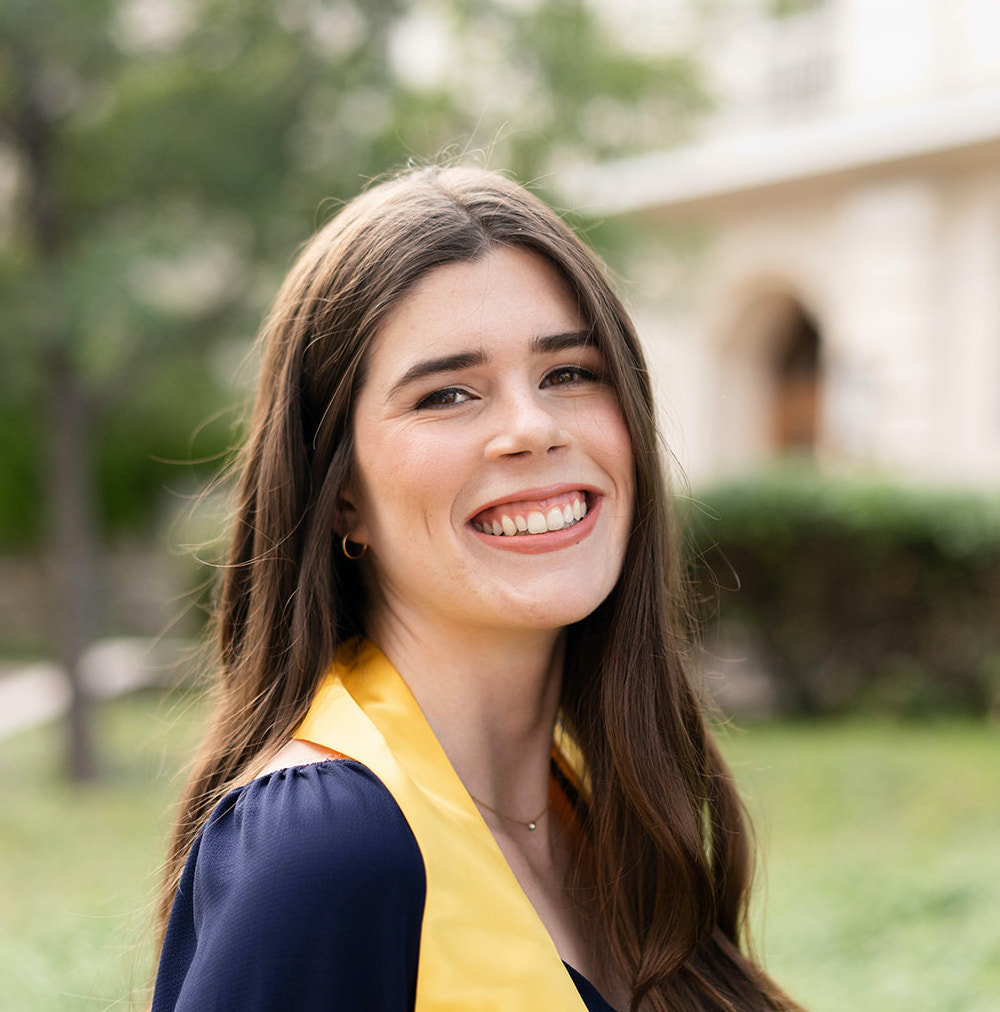
Jordan Lange (Biology)
What have you gained as a result of being a part of the Diversity, Equity, and Inclusion concentration in the College of Natural Sciences?
Through participation in the Diversity, Equity, and Inclusion Concentration I have gained the opportunity to not only understand social inequalities and how they impact us on a daily basis but also how to be a part of the solution. By understanding the various cultural differences surrounding a society, you can then begin to serve them accurately. This coupling further propelled me into the field of medicine. By undergoing thoughtful and introspective
reflection, it is then possible to develop solutions that can impact the world with positive change. Through this concentration I have gained a sense of empowerment to discuss with others the impact of DEI in our every day lives. As I continue through medical school I take these skills with me when examining patients, discussing cases with colleagues, and interacting with peers.
capstone project highlight
As an aspiring physician, I wanted to focus my project on healthcare disparities. More specifically I wanted to find ways to improve doctor-patient relationships in low-income communities. After researching and interviewing local stakeholders, I discovered that trust played a major role. Therefore, I proposed the implementation of a 1 year shadowing/volunteer program for pre-medical students to gain hands on experience in these areas. Through observing doctor-patient interactions and assisting in local community clinics, the goal was for these students to gain a better understanding of common barriers faced by these patients. Ideally, this hands-on experience would not only teach empathy, but also prepare these future physicians to effectively communicate and establish trust with their patients.
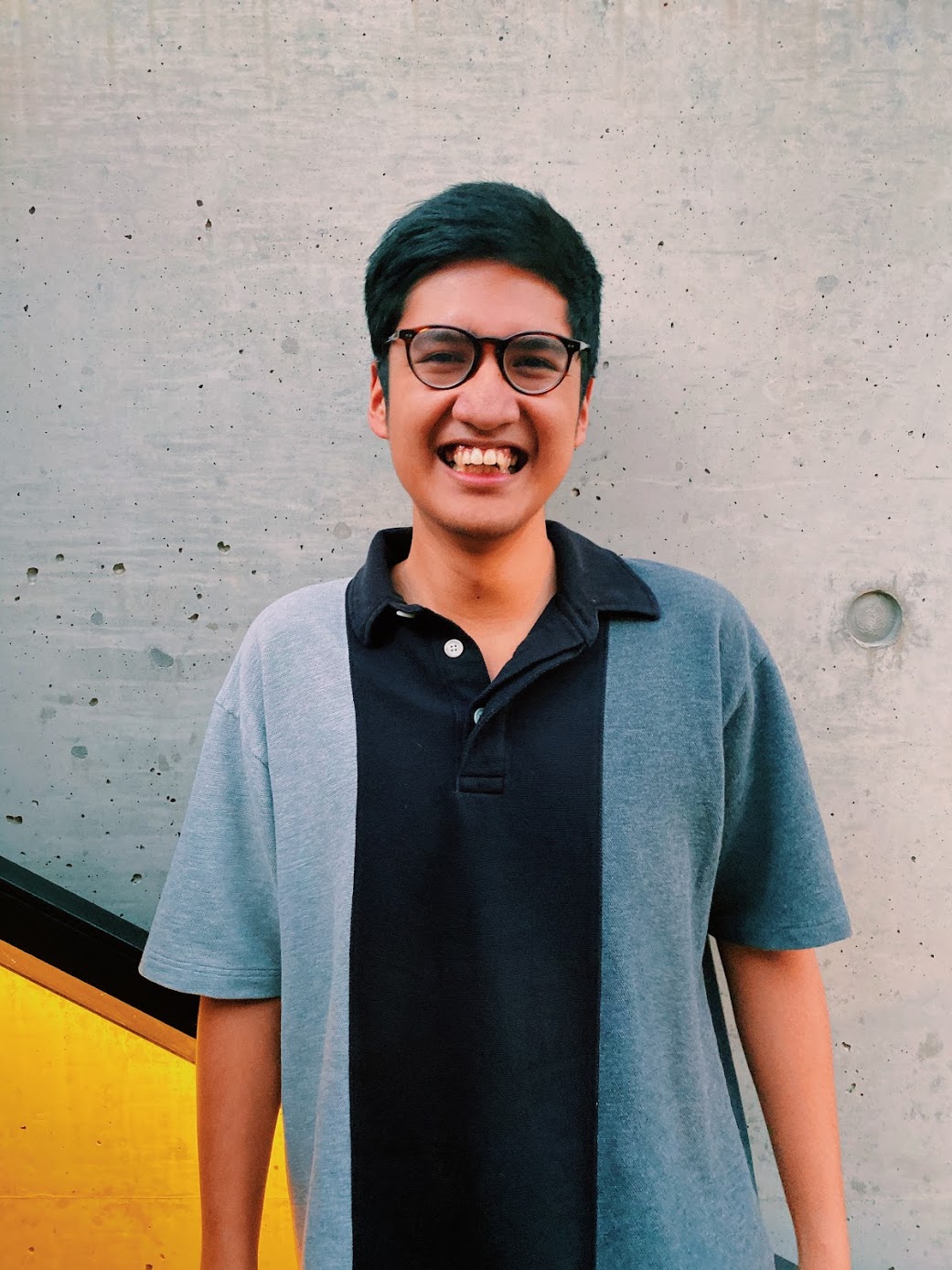
Brett Dolotina (Public Health and Biochemistry)
What have you enjoyed most about being a part of the Diversity, Equity, and Inclusion concentration in the College of Natural Sciences?
I have greatly appreciated both the breadth and depth of important topics that were covered in the Civil Discourse course, such as intersectionality, social identity, and power. Our instructor tailored part of the syllabus towards our interests and curiosities, and I enjoyed this personalization as well. Additionally, I enjoyed the freedom and flexibility that I was given in developing my Capstone project. The faculty and staff of the DEI concentration were very supportive and helpful in guiding the direction of my project while still providing me room to take charge, allowing me to learn key management skills and grow as a leader.
capstone project highlight
My capstone project aimed to highlight the experiences of LGBTQIA+ students in CNS in order to inform recommendations for policy and practice. It was motivated by my own experiences as a queer student in CNS, as well as my desire to lay the groundwork for a more equitable and inclusive environment for future LGBTQIA+ longhorns in CNS. Through focus group interviews and survey assessments, I was able to create a report detailing the current needs of LGBTQIA+ students in CNS directly from the students themselves. I presented this report to key CNS faculty and staff at the end of my Capstone semester, and plan to ensure follow-through of these recommendations.
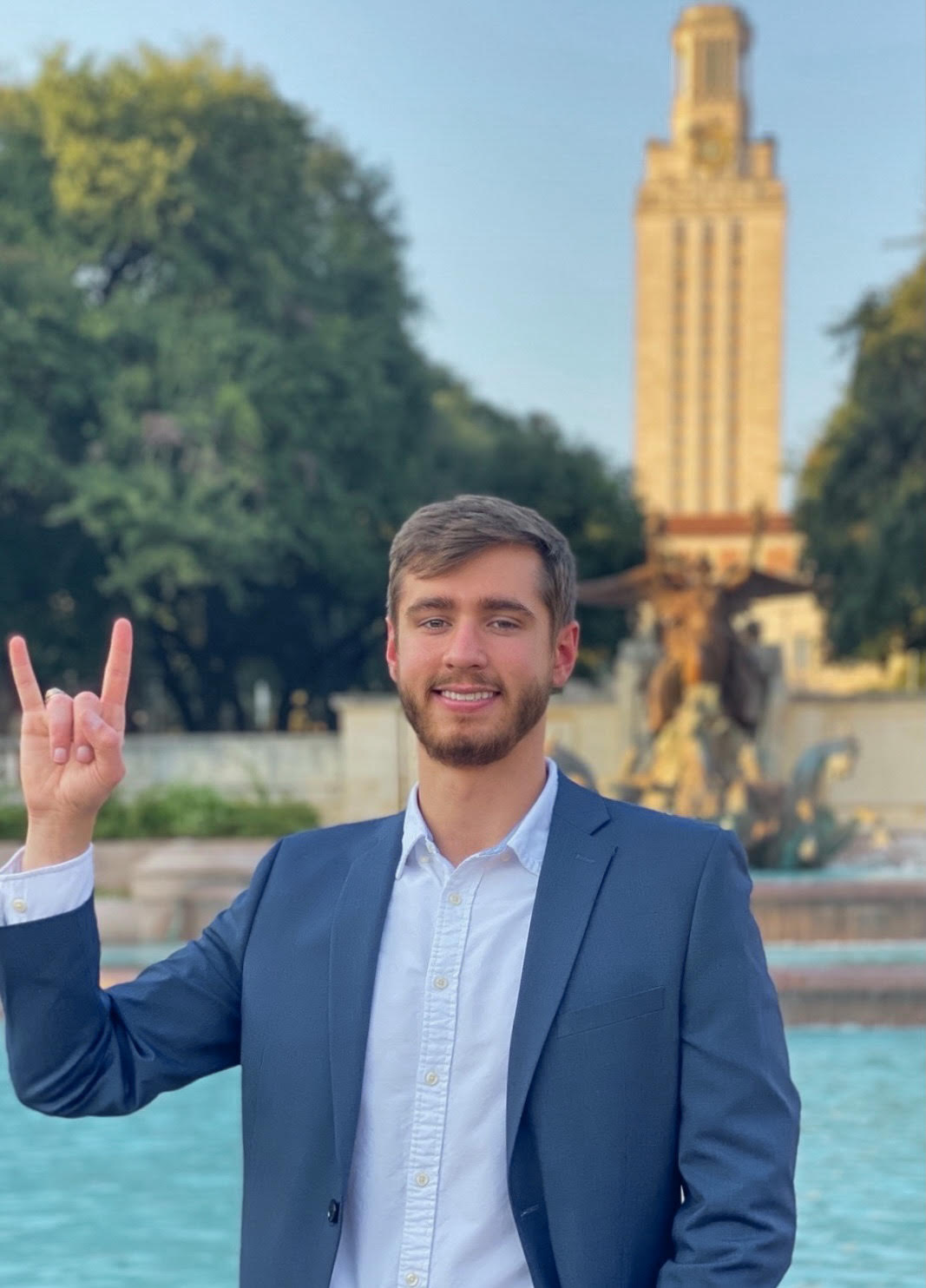
Michael Kalwick (Biology major LGBTQ/sexuality studies)
how has the Diversity, Equity, and Inclusion concentration impacted the way you navigate daily life?
It has provided me the skills to rationally navigate hard conversations where I previously would have been so emotionally charged that I would have to walk away. I now know how to discuss hard topics and convey my perspective effectively, while also giving other point of views an opportunity to be seen and heard.
capstone project highlight
Over the past years, I realized some students' identities might not align with one of the already developed UT-organized programs to feel comfortable joining. This consequently caused them to miss out on a crucial sense of community at UT. To counter this, I proposed to expand on UT programs and develop a first-year interest group for LGBTQIA+ students. Through weekly seminars, workshops, and peer mentor-led small groups, I hope LGBTQIA+ students can find their study buddies, friends, and most importantly - a support system where they feel 100% accepted being their true selves.
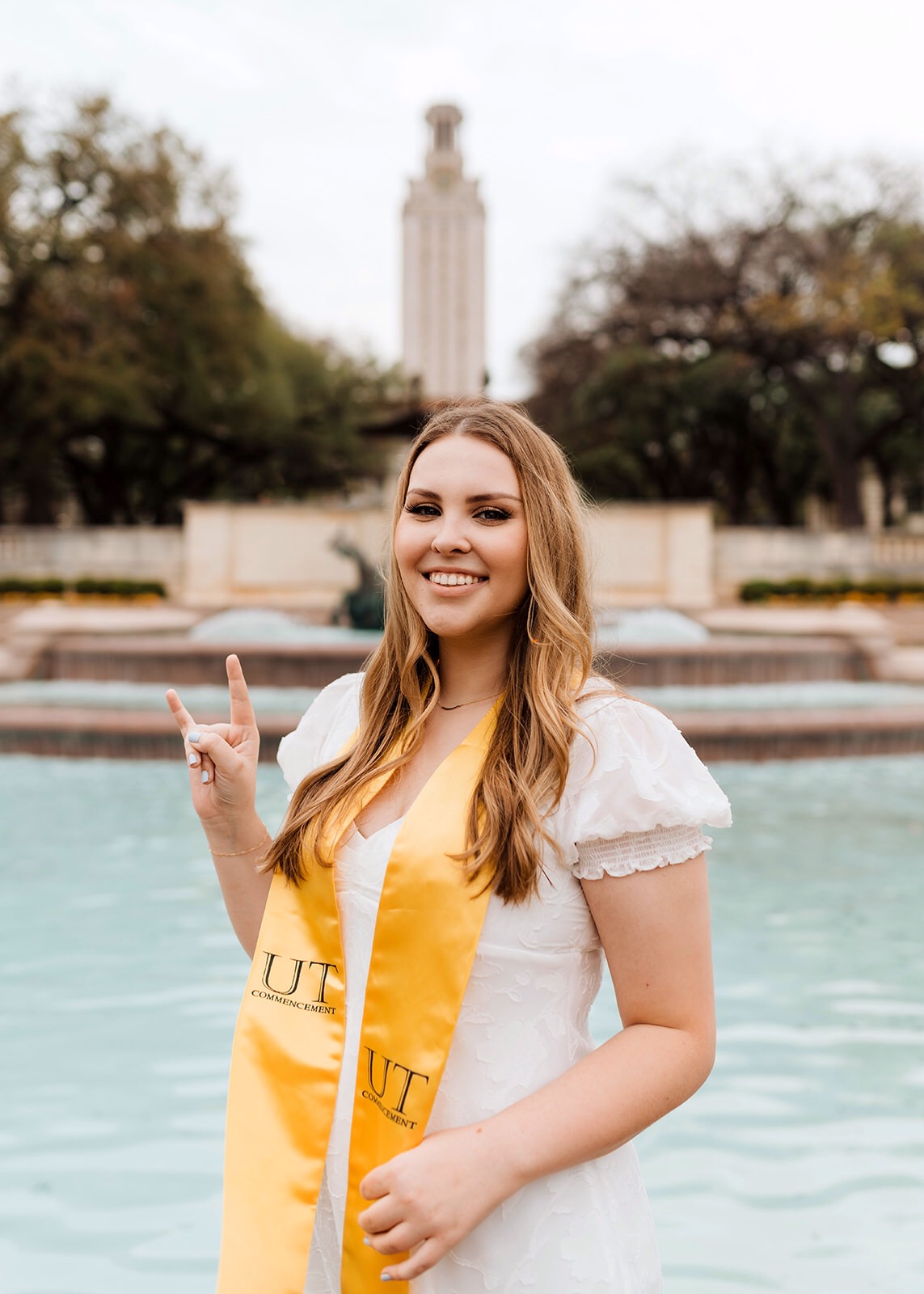
Rachel Nolte (Biochemistry)
What have you enjoyed most about being a part of the Diversity, Equity, and Inclusion concentration in the College of Natural Sciences?
I have really enjoyed being able to hear other students’ experiences and perspectives. I also enjoyed the capstone class, where I felt like I had the opportunity to make lasting change on campus.
capstone project highlight
My capstone project was creating a training module for FIG mentors to better develop their mentorship skills. I chose this project because I felt like having a mentor as a young student would have greatly benefitted me, and I felt that this type of relationship wasn’t available to me at UT. In order to carry out this project, I did a lot of research on why mentorship is important and what makes a successful mentorship program. All of my work was accumulated into a short, self-paced, online training module to help the FIG mentors develop their relationships with their mentees.
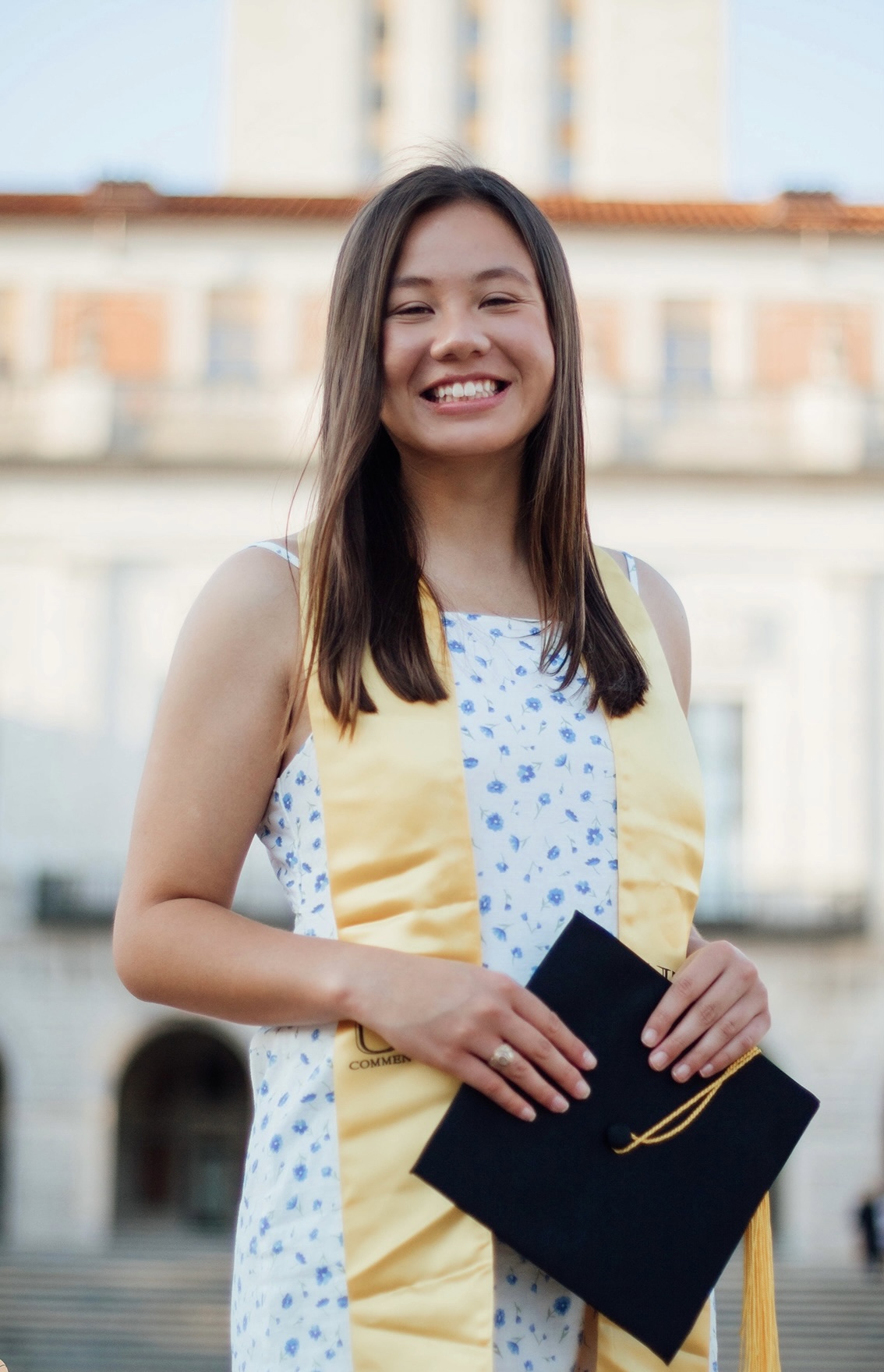
Karissa Chesky (Biology)
What have you gained as a result of being a part of the Diversity, Equity, and Inclusion concentration in the College of Natural Sciences?
I have gained awareness, conversation tools, and inclusive interpersonal skills in completing the DEI concentration. Upon joining the program, I recognized that my DEI-related knowledge was surface level, but I quickly gained important exposure to vocabulary and experiences. I developed a confidence in sharing my own story, navigating sensitive topics, and active listening. This strength has proven to be invaluable, as I am able to more meaningfully connect and understand others across many settings
capstone project highlight
My capstone project was an imposter syndrome workshop. I developed my interest in my project in the first course of the DEI Concentration, Civil Discourse, where a guest speaker spoke to us about imposter syndrome (IS). I had been feeling the weight of IS for a long time but I had not been aware of the term for the feelings that I was experiencing until that presentation, so gaining that vocabulary was very relieving for me. In hopes to educate
others on this very common issue, I proposed a virtual workshop about the prevalence, risk and effects of IS in university students through individual research, interviews, and focus groups. This project was received very positively, and I was able to have multiple conversations with CNS about implementing the workshop into FIG programming after my initial proposal.














